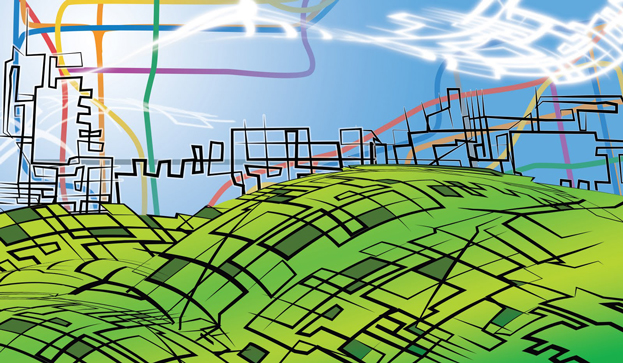
See all those black line patterns? Well, it’s actually from one tracing of the roads on Manhattan.
I used the pen tool in Illustrator, then I warped them in Photoshop to create the hills of a rural landscape.
I also noticed that it looked like a skyline, so I messed around with that, and also created clouds.
Finally, the rainbow lines are the subway lines on Manhattan.
New York, NY, the epitome of an Urban landscape, transformed into a mostly rural terrain.



Whoa! This is my favorite image that you've done so far! I love the idea of fusing an urban landscape with a rural one 🙂
LikeLike
this is really cool kelli!!! … how do you know reese??? haha
LikeLike